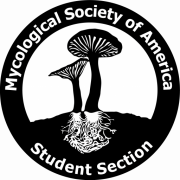
Samuel T. David grew up in Stoughton Wisconsin, a small town just south of Madison. Sam received his BS in Biology from University of Wisconsin-La Crosse. He then worked for three years doing habitat restoration and wildlife management on Fort McCoy military base before returning to UW-La Crosse. While in grad school he continues to work summers on Fort McCoy doing vegetation monitoring. He received his Master of Science in Biology in May 2017. With a thesis titled, Species composition and abundance of endorrhizal fungi in Carex pensylvanica from sand prairies. At UW-La Crosse, Sam worked with Tom Volk and Todd Osmundson. Sam’s research identified and measured colonization of the fungi found on the roots of Carex pensylvanica and looked at different environmental factors that may influence the plant-fungal interaction. Although C. pensylvanica grows from Iowa to Nova Scotia in a variety of habitats, Sam specifically investigated sand prairies because these are endangered habitats native to Wisconsin and the fungi in these habitats are not well understood.
From UWL, Sam received an RSEL grant to complete his research and a Travel Award to give an invited talk at the 2016 Radical Mycology Convergence about endophytes as an emerging area for fungal research and applications. He also volunteers time to survey and generate fungal species lists for local natural areas managed by a non-for-profit organization. In the future Sam hopes to find an interesting career, that is a mix of natural resource management, education and art.
How did you become a mycologist?
Like a hyphal tip, I grew into it…my high school science teacher, Jack Palmer, first taught me about mycorrhizae and sparked an interest. Going through a skater-punk adolescence, I was interested in things that are all around us and important, but most people don’t know about or understand, like fungi. With some fungal guidance, I decided I wanted to go to school for biology. While in biology at UW-La Crosse, I took Mycology with Tom Volk and became hooked. That’s when I heard the John Rippon quote, “Mycology is an exercise in contemplative observation,” and knew it was for me. I continued to identify, pick and eat mushrooms while working in natural resources and became known as “the mushroom guy” to my co-workers. After a few years, I happened to go on a foray with the newly formed UWL Mycology club and ran into Tom again. He encouraged me to go to grad school, so I applied, got in and ran with it.
Who is your mycology role model?
Radagast the Brown
What is your favorite mushroom/fungus, and what do you like about it?
Amanita virosa for the taste.
What is your favorite thing about mushrooms?
The thrill of finding choice edibles in the woods and sharing that feeling with friends.
Do you have any funny or interesting stories about field work?
Working on a military base is always interesting because you don’t know what you will see or find. You can be looking at rare wildflowers with helicopters carrying Humvees flying over and assault rifles going off in the distance. I have also found several unexploded ordinances including various bombs and a tank round from WWII training. We did prescribed burns in places where there were left over ammunition that started to go off. It is scary at first, but the majority are blanks and even real bullets don’t shoot out much unless out of a barrel.
One time I was walking through 8ft tall hazel brush and almost walked into a black bear. Luckily I sounded big so it ran off just before I got to it.
What do you like to do in your free time? What are your hobbies?
I like to play music with friends. I play guitar mostly, but also know bass and ukulele. Other than music, I hike, camp, rock climb, canoe, snowboard, long board, rollerblade, disc golf, hunt, fish, forage, and drink beer. I was a ceramics minor and owned and operated a little pottery business until I was too busy in grad school, but want to get back into it.


Leave a Reply